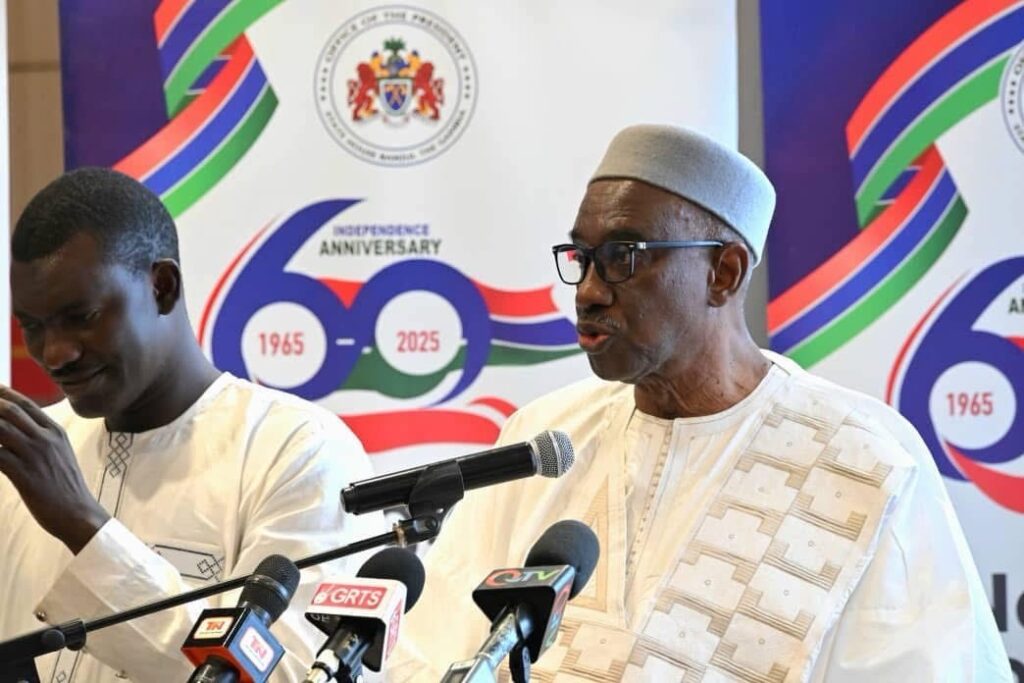National Solidarity: The Glue That Holds Us Together, Says Chief Justice

By Ramatoulie Jawo
During the second edition of the National Dialogue Forum, Chief Justice Hassan B. Jallow emphasized the critical role of national solidarity in fostering unity and progress in The Gambia.
He highlighted that both individuals and the state share the responsibility of maintaining social cohesion and mutual respect.
“Solidarity is the glue, it is the cement which welds our diversities our distinction together we must all be committed and continue to work towards enhancing, securing, and indeed advancing national solidarity and to foster a state of oneness, a state of togetherness a state of unity amongst all of us,” he said.
Chief Justice Jallow pointed out that while solidarity may not be strictly a legal concept, it carries legal and semi-legal dimensions. He noted that a strong foundation for solidarity can be found in two key legal instruments -one international and one national -both rooted in The Gambia.
The first, he said, is the Banjul Charter on Human and Peoples Rights, Africa’s premier human rights instrument, in whose creation, adoption, and implementation The Gambia under the leadership of Sir Dawda Kairaba Jawara played a pivotal role. He explained that the charter recognizes unity and solidarity as core duties of responsible citizenship, outlining various obligations individuals have toward their families, society, and the state.
He further stressed that the charter imposes a duty on individuals to respect and value their fellow citizens without discrimination and to foster relationships that promote mutual respect, tolerance, and social cohesion.
“To preserve and strengthen positive African cultural values in our relations with other members of the society in the spirit of tolerance, the spirit of dialogue and consultation and in general to contribute to the moral well-being of our society,” he emphasized.
Chief Justice Jallow also referenced The Gambia’s Constitution, particularly Chapter 20, which enshrines the directive principles of state policy. These principles, he explained, align with the African Charter’s provisions on citizens’ duties in upholding national sovereignty.
“For instance, section two 20 of the constitution declares that exercise and enjoyment of rights and freedoms are inseparable from the performance of duties and obligations and that every citizen accordingly should promote the prestige and good reputation of the country, uphold and defend the constitution foster unity and live harmoniously with others, respect the rights and freedoms and legitimate interests of others and refrain from acting in a manner detrimental to the welfare of other persons,” he said.
He mentioned that it is not only individual citizens who are the object of duties and obligations the constitutional directive principles of state policy also identify certain duties of the state and these include the promotion of national integration and unity, national sovereignty and independence the political objectives of democracy, respect for the rule of law and human rights, socio-economic progress, education, good health, sound, and satisfactory environment, quality education and training, care, and protection of the weaker in our community.
“Solidarity is an important element of nationhood small as our nation may be it is nonetheless as complex as diverse as those many states which are much bigger, which are around us. All these started feature diverse regions, tribal, and racial diversity. Diversity It provides challenges but it also provides opportunities it can be seen as a wealth which when properly tapped enriches a nation and provides a strong springboard for peace and development,” he said.


Comments are closed, but trackbacks and pingbacks are open.